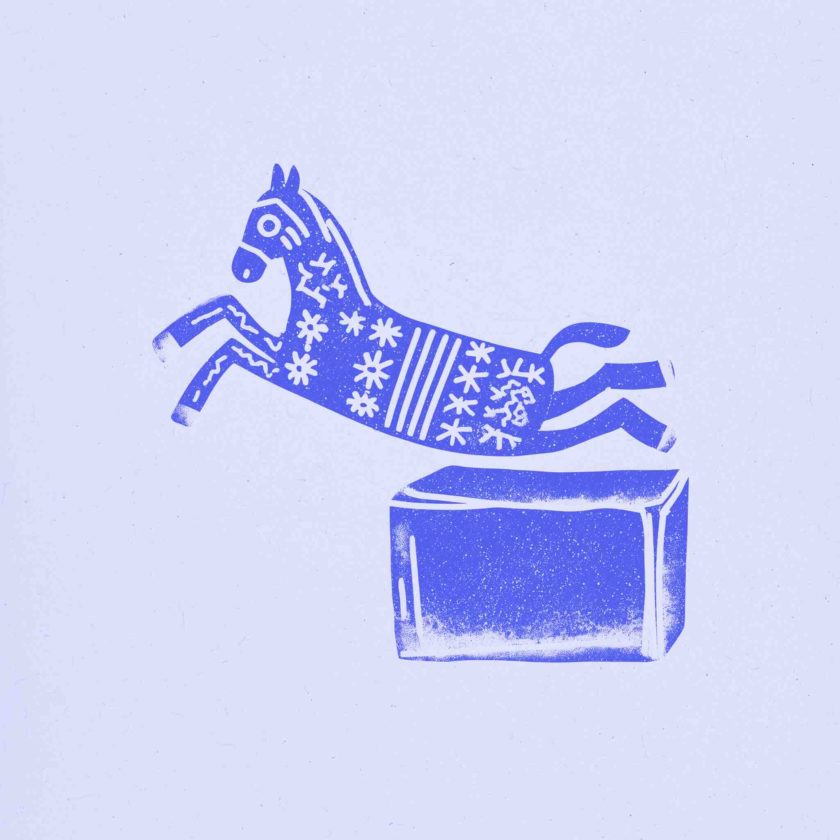Your life isn’t long enough to learn only from your own mistakes, which is why you must make it a point to learn from the mistakes of others.
Mistakes are well-documented: we’re simply too proud to read about them
Pride is a cardinal sin, but beyond religion, pride is a major obstacle to progress in personal development. Pride makes us believe that we are different (and often superior to others). As a result, we don’t take the time to listen attentively to what others have to share with us. This pride leads us to repeat mistakes that we could have avoided by learning from others, costing us time, energy, and opportunities.
There’s no need to reinvent the wheel to succeed: assimilating the wisdom of those who came before us is often enough to get us on the right track. However, learning from others requires humility, because it’s this quality that makes us more receptive to what we read or hear.
Here’s a quote that I particularly like on this topic:
He who knows that he knows, listen to him. He who does not know that he knows, awaken him. He who knows that he does not know, educate him. He who does not know that he does not know, avoid him. – Lao Tzu
Cultivating humility
Humility is the cornerstone that allows us to learn from others. To develop it, you need to confront life and realize how little you actually know. Exposing yourself voluntarily to difficult challenges, whether physical or intellectual, is a great way to gain humility. If you avoid challenges and never test your limits, it’s easy to become proud or arrogant.
For example, practicing combat sports or taking on demanding studies (medicine, law, engineering, etc.) will force you to ground yourself and become more humble to succeed. Facing adversity is a powerful way to cultivate humility.
Become spiritual
Another way to cultivate humility is by embarking on a spiritual journey. By reflecting on your place in the world, you begin to put your own importance into perspective and recognize your limitations. This connection with spirituality is often deepened by adversity: the more life challenges you, the more you may feel the need to connect with something greater than yourself.
Where to find others’ mistakes?
There are many ways to learn from the mistakes of others, and books are an especially rich resource. Biographies, philosophical essays, or even fictional works can offer invaluable lessons. While reading, take the time to reflect on ideas that resonate with you. Wisdom doesn’t come from simply accumulating knowledge; it emerges when you apply reflection and thoughtful action to what you’ve learned.
Also, seek parallels between what you read and your own life. A new idea only becomes meaningful when you apply it or take actionable lessons from it that relate directly to your context.
Everyone is your teacher
You can learn from everyone you meet, by observing both their strengths and their flaws. When you spot a flaw, ask yourself if you have the same one. When you notice a quality, think about how you can develop it within yourself.
That being said, always maintain a psychological distance. While it’s crucial to learn from others, you must be cautious not to let their flaws “contaminate” you. Be observant and critical, but remain vigilant.
Most mistakes stem from a lack of virtue
A large portion of the mistakes we make with significant impacts on our lives stem from a lack of virtue or moral principles. Mistakes born out of ignorance are usually less damaging than those rooted in ethical lapses. For instance, betraying a friend or deliberately lying can have severe repercussions on your well-being by eroding your reputation and your “honor capital.”
This is why reading philosophical, ethical, or spiritual books is essential, especially if you haven’t had the chance to develop strong moral foundations within your upbringing.
Treat your brain like artificial intelligence to make better decisions
An AI model needs a large amount of data and repeated training to operate with precision. The human brain works in a similar way: it needs to collect information (through reading, learning, and experiences) and analyze it to make better decisions.
Here’s how it works: the more you read, experience, and learn by observing others, the better your brain will become at making predictions and decisions. To accelerate this process, regularly integrate new knowledge into real-life situations. Engage in mastermind groups or discussion forums, surround yourself with mentors or experts in specific fields, and observe their strategies and outcomes.
In summary:
-
Your life is too short to rely solely on learning from your own mistakes. Learn from others.
-
Observe the people around you. Either imitate those who succeed to achieve similar results or do the opposite of those who fail to achieve different outcomes.
-
Treat your brain like artificial intelligence: accumulate knowledge through reading and observation while seeking to apply it practically in your life.










